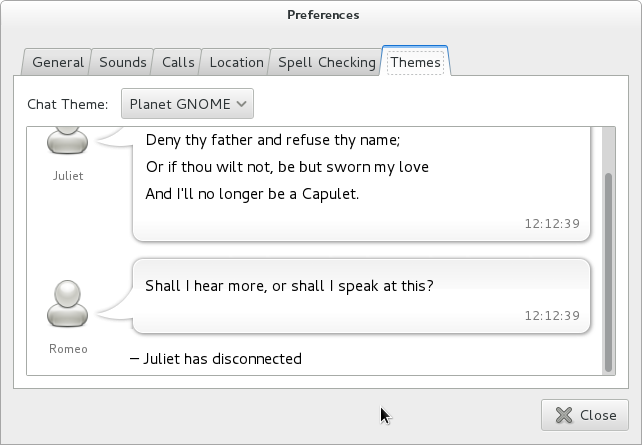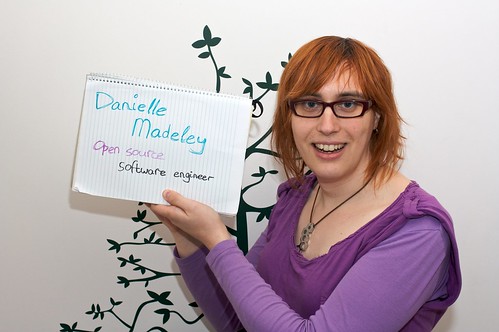Yesterday Michael Meeks expressed his distaste at GUADEC’s Attendee’s policy.
I have personally advocated for conferences to adopt anti-harassment guidelines. I am also an advisor to The Ada Initiative, which is involved with this work.
Michael writes:
Fair enough getting aggressive against stalking, groping and such horrors; but encouraging censorship of “offensive” verbal comments related to sexual orientation, religion etc. looks like a persecutors charter in the making. What is offensive ? and to whom ? the fear being that -very- quickly such good aspirations slide from “applied common sense” into a militant denial of a basic right to reasonably critique others’ world-views. Put another way I’m really happy for people to tell me how wrong-headed I am on any number of engaging topics, and to discuss them in an animated and friendly fashion. I loathe a framework that will discourage people from coming and saying: “your Christian faith seems incomprehensibly stupid to me” (for example), or “the crazy English always fall down the stairs”, or whatever.
Here is the relevant section of the attendee’s policy:
Harassment includes offensive verbal comments related to gender, sexual orientation, disability, physical appearance, body size, race, religion, sexual images in public spaces, deliberate intimidation, stalking, following, unauthorized or inappropriate photography or recording, sustained disruption of talks or other events, inappropriate physical contact, and unwelcome sexual attention.
Firstly, if you can’t understand the point of an anti-harassment policy, or you think what’s written is obvious, then the policy probably isn’t there to protect you. Typically, when you are a member of the dominant demographic group in a space, you do not need to be protected in this way. On the other hand, I’ve heard women be told you don’t belong here, that they’re unfuckable or a dyke. I’ve been followed, I’ve had my picture taken repeatedly without my consent, one time including a sleazy remark. My friends have been stalked, photographed discreetly, inappropriately touched and sexually assaulted.
More often than not the attempted defence against this sort of behaviour is I didn’t know. Experience shows that some people do need acceptable and unacceptable behavior spelled out precisely.
Offence is in the ear of the listener (who is not always the recipient of the comment). It’s also important to distinguish the ability to critique from being offensive. Dialogue is negotiated. You can willingly consent to discuss your religion, but you don’t have to accept being verbally abused because of it. The list here indicates the common problem areas across the broad technical community (GUADEC/Desktop Summit is better than most, but not immune). Most of these are also present in various jurisdictions’ anti-discrimination law.
The goal of these policies is to make sure that everyone at the event has a good time. That no one feels like less of a person or has their day ruined because someone else was nasty to them because they’re Muslim, gay, African, obese, partially-deaf or so forth. That no one should ever feel unsafe. The goal is not to stifle discussion or censor fun (if you think hurting people is fun, consider therapy). There are many ways of being funny without putting your audience down.
People should feel comfortable and safe in our community. An anti-harassment policy is a statement that our community makes an effort to be inclusive, friendly and safe for everyone.
For more information, see Conference anti-harassment policy resources on the Geek Feminism wiki.




